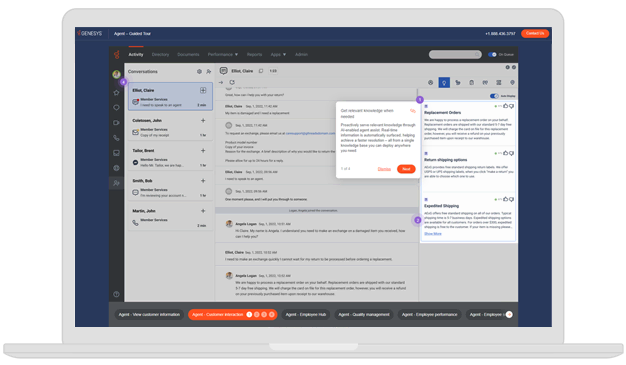Ethical artificial intelligence (AI) refers to the development and deployment of artificial intelligence technologies in a way that aligns with moral principles such as fairness, accountability, transparency and privacy. It ensures that AI systems are designed and used to avoid bias, protect user data and produce explainable outcomes.
Ethical AI practices involve inclusive data sets, rigorous testing and oversight mechanisms to prevent harm and promote trust. As organizations rely more on AI for decision-making, prioritizing ethical standards is critical to ensure responsible innovation that serves both business objectives and societal good.
“The challenge is that AI doesn’t have a moral compass. So, it’s important that human vigilance is part of the innovation process of how the technology is built and implemented in products or services. This means the rush to innovate shouldn’t sideline guidance on how data is acquired to train AI, how and where the generated results will be used, and what permissions for use will be required.”
Arpita Maity‑Peschard, Product Marketing Director, Genesys
Ethical AI for enterprise businesses
Ethical artificial intelligence (AI) refers to the responsible design, development and use of AI systems that align with core values such as fairness, transparency, privacy and accountability. For enterprise businesses, ethical AI ensures that AI technologies support both business goals and the rights of customers, employees and society at large.
An ethical AI approach avoids bias, respects user privacy and makes decisions that can be explained and trusted. For example, if an AI system routes customer calls or suggests pricing, it must do so fairly — without favoring or discriminating against certain groups.
Ethical AI also means being clear about when and how AI is used, giving users control when appropriate and maintaining human oversight in critical decisions. It includes regular testing, monitoring and updating of systems to make sure they stay accurate and responsible over time.
For enterprise businesses, ethical AI reduces legal risk, protects brand reputation and builds customer trust. As AI becomes more central to customer experience and operations, making ethics part of the strategy is not just the right thing to do — it’s essential for long-term success.






